ARTICLE AD BOX
Will Grant
Mexico and Central America correspondent
Reporting fromCiudad Juárez

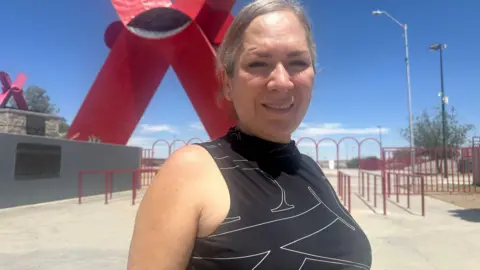 BBC
BBC
Silvia Delgado defended the notorious drug lord, El Chapo. Now she's running for office
As drivers sit in traffic near the Bridge of the Americas connecting Mexico with the USA, Silvia Delgado weaves between the cars handing out leaflets.
"I'm standing for penal judge," she says brightly. "Vote for number 12 on the ballot papers!"
Most happily wind down their windows and accept a flyer from her. But in Sunday's rather unique election – the first of two votes by which Mexicans will choose the country's entire judiciary by direct ballot – Silvia Delgado is not an ordinary candidate.
Conspicuously absent from the short biography on her pamphlets is the name of her best-known client: she was the defence lawyer for the notorious drug lord, Joaquin "El Chapo" Guzmán.
Her critics say her past defending the leader of the Sinaloa Cartel should disqualify her from standing as a judge. She gives that idea short shrift.
"Why should it? For doing my job?" she retorts, her heckles immediately raised at any suggestion of a conflict of interest.
"For defending people's individual guarantees? For mounting an adequate technical defence for a human being? Why should that make me illegitimate?" she asks.

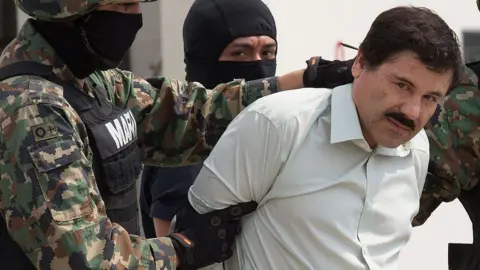 Getty Images
Getty Images
El Chapo is currently serving life in prison in the US
Silvia Delgado has not been convicted of any crime, is not facing any charges and is not under investigation – whether over her links to El Chapo or anything else.
But a leading human rights and transparency organisation in Mexico called Defensorxs has included her in a list of 19 "high risk candidates" in the election. As well as Ms Delgado, the list includes a candidate with a drug trafficking conviction and another facing accusations of orchestrating violence against journalists.
The director of Defensorxs, Miguel Alfonso Meza, believes the so-called "high risk candidates" are a danger to the legitimacy of Mexico's justice system:
"Someone that has already worked with a cartel, it is very difficult that they get out, even if it was only as a lawyer. It's not even about whether she's a good person or a bad person," says Mr Meza, referring to Silvia Delgado.
"The Sinaloa Cartel is not only 'El Chapo' Guzman. It is a company that has criminal and economic interests which are being resolved in the justice system. The cartel could pressure her to show loyalty because she has already been their employee."
Silvia Delgado visibly stiffens at the mention of Defensorxs and Miguel Alfonso Meza.
"It's completely stupid," she bristles, claiming she has challenged them to "dig into her past as much as they like". She also dismisses their main accusation that she was paid with drug money and could be compromised if she is elected judge.
"How can you prove that? I received a payment which was the same as any normal monthly payment which was paid to me by lawyers, members of his legal team. I'm not his daughter or his sister or anything. I'm a professional."


Silvia Delgado's pamphlets do not mention her most famous client
Ms Delgado is competing for one of more than 7,500 judicial position up for grabs – from local magistrates to all nine Supreme Court justices.
While it was under discussion, the judicial reform prompted widespread protests by law students and a strike by workers in the legal system. Its critics maintain that electing every judge in Mexico amounts to the politicisation of the country's justice system.
"Of course, it's a political attack [on the judiciary]," says Miguel Alfonso Meza.
"Former President Andrés Manuel López Obrador didn't like to have constraints from the judicial power. When the pressure became too great and the constraints too tight, the only solution they found was to remove all the judges in the country," he adds.
This reform was passed before President Claudia Sheinbaum was sworn in, but she is a firm supporter of it and polls suggest it has broad approval among the electorate too.
Supporters point out that the United States, Switzerland and Bolivia elect many of their judges. But Mexico will become the first country in the world to elect all of them. Markets remain unconvinced with investors fearful of the prospect of the ruling party controlling the presidency, the legislative branch and the judiciary.
Miguel Alfonso Meza believes that problems will arise from "the agreements and negotiations judges have to make with political actors… in order to get the support they need to win the elections".

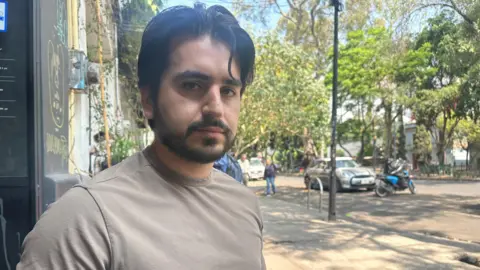
Critics like Miguel Alfonso Meza fear the politicisation of the judiciary
One of the 64 candidates seeking a seat on the Supreme Court is Olivia Aguirre Bonilla. Also from Ciudad Juárez, her legal background is in human rights law and as an activist against gender-based violence in the notoriously dangerous border city.
Like all the candidates, Ms Aguirre Bonilla has had to pay for her campaign out of her own pocket – candidates are banned from accepting public or private funding and forbidden from purchasing advertising spots. As such, she's primarily used social media to push out her 6-point plan from clamping down on exorbitant salaries to opening the Supreme Court hearings to the public.
While she acknowledges the criticisms over the potential politicisation of Mexico's justice system, Aguirre Bonilla believes the vote is an opportunity for meaningful change of a collapsed, corrupted and nepotistic judiciary.
"I think all the citizens in Mexico are politicised, and we're all part of public life," she says.
"The difference here is that our 'untouchable' legal system – and it was untouchable because it was controlled by the elites, by privilege – for the first time in history will be voted in. It will be democratised through the popular vote."
Many people in the judiciary were there through influence and familial connections, Aguirre Bonilla argues, and it lacks the legitimacy of the executive and legislative branches.
"This vote will grant the justice system true independence as it's not chosen by the President of the Republic but elected by the people of Mexico to represent them."

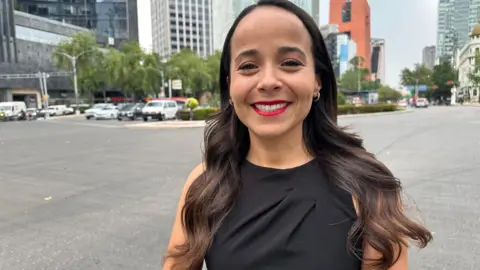
Olivia Aguirre Bonilla believes the reform gives citizens their say in the judicial system
So far, the arguments over constitutionality and legitimacy, over the process and the candidates have been bitter and fierce.
Now all eyes turn to the polling stations, particularly on the turnout and abstention rates as indicators of Mexicans' backing for the reform.
As for Silvia Delgado, the woman who defended Mexico's most wanted drug lord, she just hopes the people of Ciudad Juárez will respect her work enough to allow her to sit in judgement of other criminals who are brought before her.

 1 day ago
10
1 day ago
10
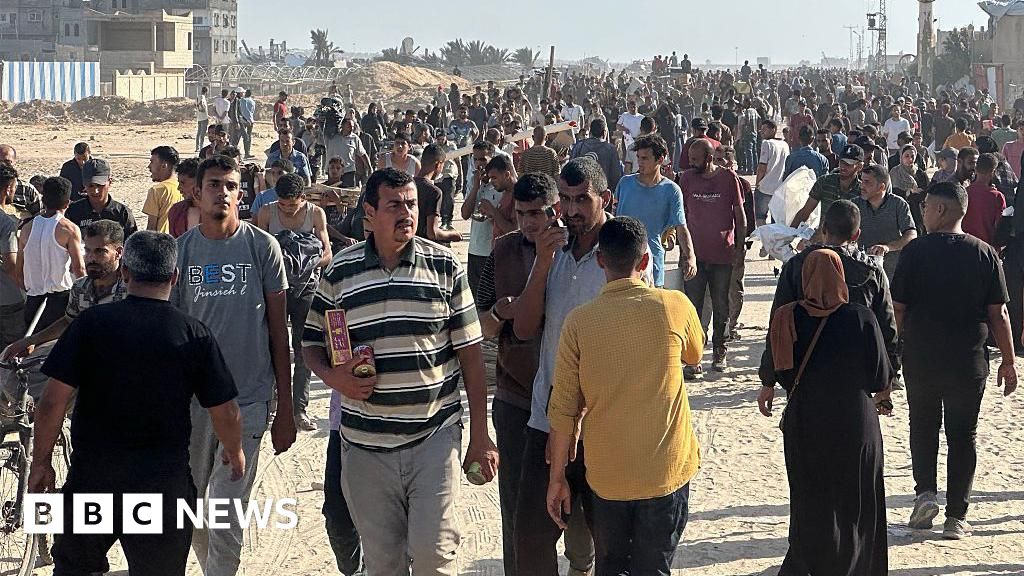
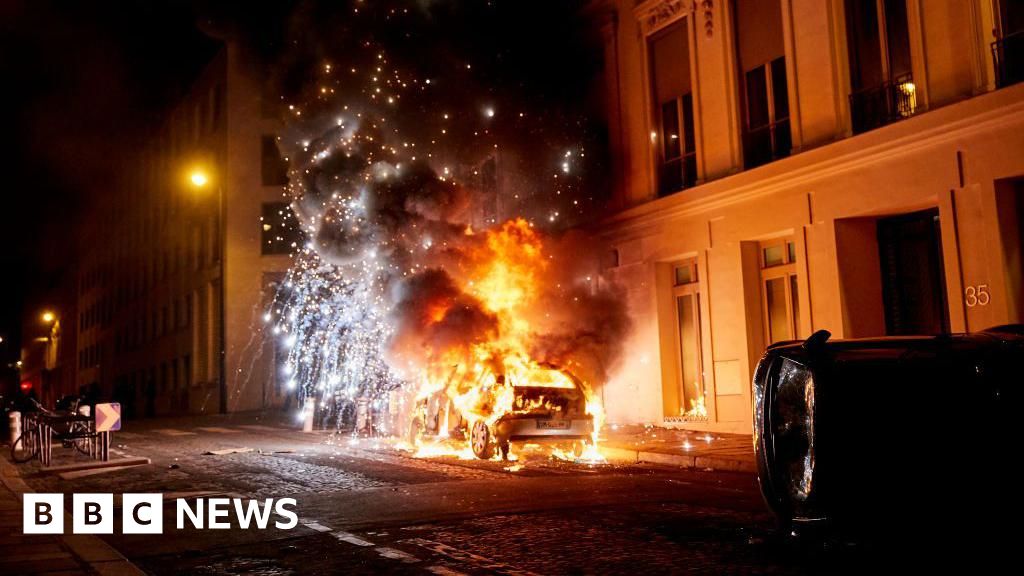
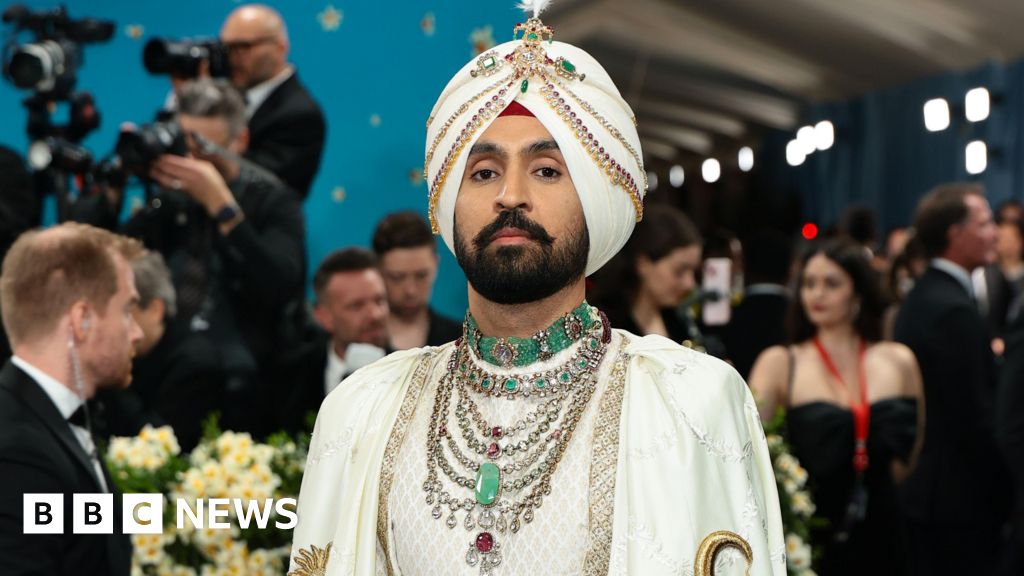





 English (US) ·
English (US) ·